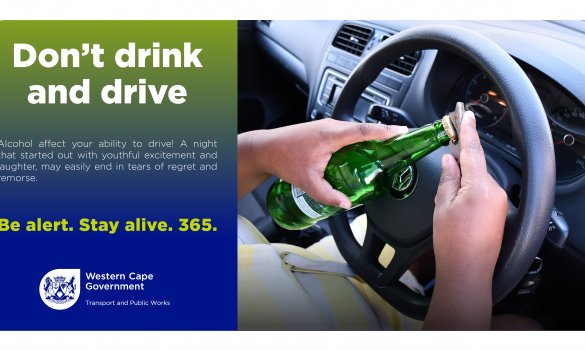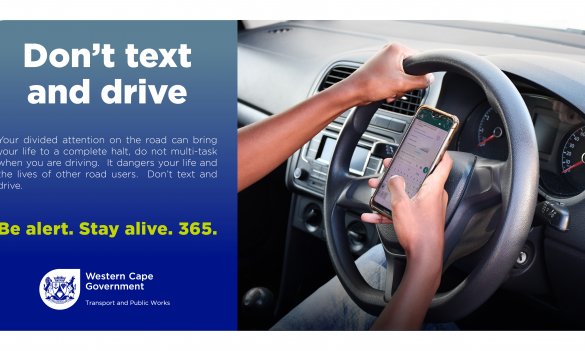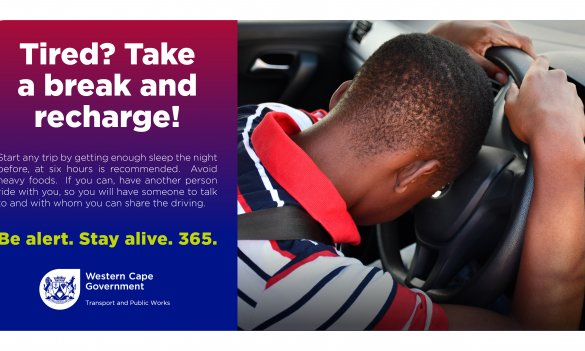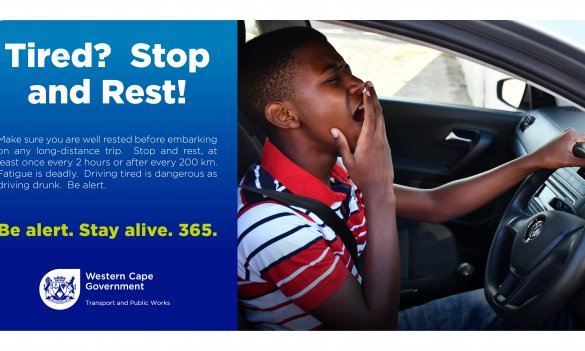Driver fatigue is one of the most serious threats to road safety. Tired drivers can easily lose concentration, drift into oncoming traffic, veer off the road, or fail to see pedestrians or obstructions in the road.
Fatigue can affect any driver, but is mostly associated with long-distance driving. Fatigue can also set in after a long day at work, an outing at the beach, or after any tiring activity. Emotional stress, illness or boredom can also cause driver fatigue. Sun glare is a major factor in eyestrain which can contribute to fatigue. Over-eating, drinking alcoholic beverages, or riding in an over-heated or very cold vehicle can compound the effects of fatigue.
Tips to avoid fatigue:
- Make sure you are well rested before embarking on any long-distance trip.
- Stop and rest at least once every 2 hours or after every 200 km.
- Prepare yourself for any long trip by getting enough sleep the night before. At least six hours is recommended.
- Avoid heavy foods.
- If possible, have another person ride with you, so you will have someone to talk to and with whom you can share the driving.
- Wear good quality sunglasses while driving, especially when you are driving towards the sun.
Distracted driving is when drivers engage in other activities that take their attention away from driving. Anything that takes your attention from driving can be a distraction – sending a text message, talking on a cell phone, using a navigation system, or eating while driving. Even having a conversation can be distracting. You should give driving your full attention.
Tips to avoid distraction driving:
- Don’t text and drive
Dividing your attention while driving can bring your life to a complete halt. Do not multi-task when you are driving. It endangers your life and the lives of others.
- Don’t drink and drive
Alcohol affects your ability to drive. A night that started out with youthful excitement and laughter may easily end in tears of regret and remorse.




